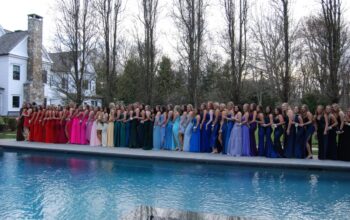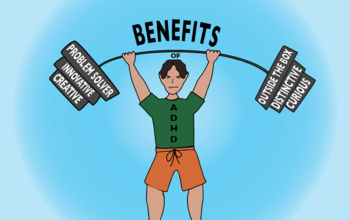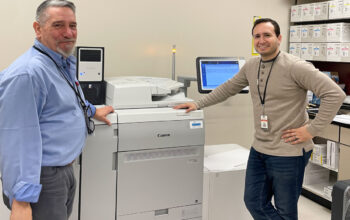Emilie Kushner & Casey Manzella
Senior Editor & Reporter
For new students and freshman alike, getting your schedule can look like a bunch of names that mean nothing. Even seniors haven’t met all of the 113 teachers in their four years at NCHS… and even if you know a teacher’s name or what they look like, do you really know them? Hannah Magnan may be a name you have never heard. She was born with the Amish in Lancaster, PA and has now been teaching English at NCHS for two years. She lives in Stamford and she is one of my favorite teachers.
httpv://www.youtube.com/watch?v=U_L4RN1E20M
Tell us about yourself.
I was born with the amish in Lancaster, Pennsylvania. I grew up in Pennsylvania. I lived in Colorado and Mississippi. And I moved back to Pennsylvania. Went to college at Boston University and then moved to Connecticut and went to grad school here. I taught at a little high school-I used to work at Corporate America, I was a writer in Corporate America, and then I got my certification and started teaching at a little high school in Bolton, Connecticut, and then I came here.
Do you have any siblings or pets?
I have two older sisters. I have a younger brother. I do not have any pets currently. People always say I would be a great cat lady.
What inspired you to become a teacher?
You know, that’s interesting. I always knew that I loved teaching when I was writing at Pratt. I really enjoyed it. I did a lot of training and I really enjoyed the training, but it’s really hard to get super excited about like a SAP Documentation System, you know? So the material that I was teaching, I wasn’t passionate about the material and the people who were learning it weren’t certainly weren’t passionate about the material either. So, I always knew that I enjoyed teaching very much, but I didn’t know I was going to teach high school. I used to think that I would stay in Grad School forever and teach college. But I always knew that teaching was kind of a direction I wanted to go because I love learning, so I learn the most when I teach.
You teach sophomores and seniors. What’s that like?
I don’t have favorites at all! I think that really they’re all good for their own reasons. Sophomores, there’s something about sophomore enthusiasm that I think is pretty unmatched in my experience. They are just “sunshiny,” enthusiastic, easy to inspire, very eager, motivated, excited about the material and the growth that I see sophomore year is probably unparalleled in my experience. I’ve taught freshmen, taught sophomores. I’ve taught juniors. I’ve taught seniors, although some in briefer periods. Sophomore year, they certainly just blossom. The beginning of sophomore year to the end of sophomore year I feel like they grow 6 inches. They grow in maturity and skill too, and that’s really exciting to see
As far as seniors go, I love the elective opportunities senior year because those classes are so fun to teach. Kids have come into their own a little bit more. They have a better idea of who they want to be so as a result they’re willing to take more risks creatively. I teach Poetry and Creative Writing senior year. The kids come up with things I would never fathom and that is really exciting for me to see a question on the board lead to so many different responses. Voices of the World, considering kind of a philosophical placement in the universe and how their identity fits into the globe is fascinating for me. The willingness to explore is very different senior year than sophomore year, just because of their willingness to take risks. So, I can’t really pick favorites.
Why do like teaching what you teach?
I love words. I love language. So, I can’t say that if I were teaching different courses that I wouldn’t love them too. I’m a little biased because I always think that I have the greatest students in New Canaan, Connecticut. Obviously, they’re mine. So, I sort of feel that way about my classes too. I feel that if I don’t love something, I shouldn’t be teaching it. So, I teach what I love and if I don’t love it, I find a different way to teach it so that I can love it. I think that is the job of the teacher. For example, with World Lit, we approach things very philosophically. Where, when we’re talking about the self and the other, we talk about how one becomes the self. We talk about the philosophical background: the determinism, or fatalism, or existentialism- how we make meaning out of our universe regardless of who we are. That is something that I find fascinating. Because I find it fascinating, I can teach that well. So that’s the direction from which I approach the curriculum.
Do you think English leads to more Self Development and Reflection than other classes?
Perhaps. It’s a different kind of learning. It’s certainly not a greater learning or anything like that. But you know, when we consider one of the things that helps us to analyze literature is our connection to the protagonist, our connection to the plot, our ability to develop empathy to the characters. So I’m thinking that because of this we are constantly reflecting “how is this character like me, how is this character unlike me?” The English department pilots the reflection rubric so we’re constantly reflecting on “how well am I communicating who I am, who I want to become, how does my struggle towards writing a better thesis statement kind of match the struggle of a character in a book?” So we are specifically reflecting on our experiences both academically and personally in english class as opposed to in other classes we’re not really reflecting on extracurricular activities. So I would say that it is certainly not a more important course, or anything like that. But it does lends itself to reflection and growth. I certainly learn a lot about myself by writing and reading.
What do you hope your students get from having you as a teacher?
I really hope that they think about how to live with intention, I guess. Consider why they sort of think why they think what they think. Because a lot of times the way that we kind of approach it, the essential questions for a lot of the courses are: How do we understand the relationship between the individual and the society? How does our context create who we are? So when you consider that question it’s like the person, my students’ identities, how are they shaped by the texts they consume, by the friends that they have, by the friends that they have, by the movies that they watch, by the culture in which they live. All of these things. How does that inform who they are? And if that has informed who they are, do they want it to? Do they want to be who they are? If they don’t want to be who they are, how do they decide? How do they chose what they want to believe? How do they chose how they want to live? And I think that all of that is the reflection we were talking about before. We consider other people grappling with that connection when we read and when we write. So I want them to be able to consider that for themselves. It’s like on the cafeteria wall: “What we are to be, we are now becoming.” I want them to consider that as a result of my course, if at all possible.
Who is your best friend at school?
I’m pretty tight with Ms. Hammond. I’m pretty tight with Ms. Bakes, we used to be workout buddies. A lot with Ms. Steidl definitely, the whole English Department. It’s such a warm community I feel like there is no one I couldn’t be close with. We all work so hard, so it’s kind of people that I end up working with. I did a lot of modification work with Ms. Hammond last year so we got tight then. I work with Mr. Bloss and Ms. Bakes with advisory so I’m close with them too. The whole English Department, we’re always collaborating so I’m close with them too. Ms. Steidl, every 3rd period I work with her so it just seems like everyone is such wonderful people that it’s kind of like when you’re in a position to work with them, you’re immediately friends. Besties.
What are you passionate about?
I’m passionate about many things! I feel like if you’re passionate about so many things can you really be passionate about anything? You know? I think it kind of goes back to living with intention and living without fear. I was talking to Cathy Swan the other day and she was talking about something with her advisory, about her life goals and she wanted to travel, she wanted to learn to speak french, she wanted to, I think it was like live without fear, and she’s accomplished those life goals. I was kind of thinking about that. I was thinking that that’s kind of like passion. I can list my hobbies: I love backpacking, I did two weeks on the Appalachian Trail, I love outdoor adventures where I get filthy and feel athletic and strong: running in the rain and things like that. I love that sort of thing. I think that ultimately, there’s not a specific activity that I love so much that it is passionate about a way to live and a way to kind of pay attention and notice how beautiful the universe is. I know that sounds really kind of “earth-mothery” but it’s true. I think that we have this incredible gift and all we have to do is step outside.
What are some things your students might not know about you?
I always tell students the one about the harmonica where I carry a harmonica in my bag just in case I get stranded on a desert island and need a hobby to take up a very long period of time. But, everyone actually knows that one. I just learned last night that my grandmother was struck by lightning twice. Isn’t that insane? Twice! So I was thinking just about the crazy stories that we all have about our relatives. Another one I learned is on my father’s side I’m related to a haitian soldier who was involved in the crossing of the delaware and he escaped the crossing the delaware- washington surprised them on Christmas day and they were all like ahhh because nobody is going to attack on Christmas day because they’re all asleep, probably sick from celebrating too much. My ancestor apparently deserted the army and ran away and to escape persecution for deserting his army changed his name and settled in the states. That’s my dad’s side. My mom’s side, we’re related to Billy the Kid, who’s a famous outlaw. So I basically come from a long line of cowards and thieves who have then been struck by lightning. I love lineage! I think that that is so fascinating. Just the stories that create us.
Tell us more about the Amish.
I was born in Lancaster county but I am not Amish. My family, my father was a preacher and was starting a church, a non-Amish church in lancaster. So we were born out there. They made beautiful furniture, I know that’s a stereotype, but it really was beautiful. We had a car and we were probably some of the people in town who had a car because there really is the horse-and-buggy. We lived on a farm. It was great!
Do you see yourself reflected in any of your students?
Oh all the time. Not like specifically that kid is just like me, more like little bits and pieces, where one of them will ask a question in exactly the way that I would have asked it. But more than that, I wish that I had been as charming and self-aware as the New Canaan kids are. Because I find that your ability to reflect and kind of openness and willingness to engage and really try and take chances is something that I did not have. So I see myself in other students now, but I wish that I had been like that in high school but I wasn’t.
So for future students who will be taking Sophomore English or English electives, what kind of message do you want to send to them?
You have to be willing to take risks. You have to be willing to engage genuinely. It helps if you are enthusiastic and don’t make fun of me when I am really energetic at 7 in the morning and you guys are falling asleep. I would say it depends on the class too. The writing classes are a lot of work. You have to be willing to write and write and write and write. Just because we establish practice, practice, practice. A lot of them I find that even thinking is something that just takes a lot of practice. You hear about how you become an expert about everything. Malcolm Gladwell talks about how to become an expert at anything. He says it takes 10,000 hours of practice to become an expert at playing basketball. So I sort of feel like that applies to writing, it applies to thinking, it applies to everything where you need to genuinely experience something for 10,000 hours to become an expert at it. So we’re chipping away at that time, but it needs to be a genuine attempt to experience something if they want improvement. So just approach it genuinely, authentically.
Tell us about the Tough Mudder.
Basically it’s like 11 or 12 miles. It is an obstacle course that is designed by the British Special Forces. A lot of times you are like climbing under barbed wire and then running up ski slopes. You have to climb a half pipe and you have to run and jump and people catch you and help pull you up. You have to scale a 20 ft wall a couple of times. You have to climb through this little, tiny hole down under ground and up the other side. You’re scraped up- I still have a bruise, it’ll be a year later, I still have a bruise that is swollen from a year ago from it. It was really hard. I did it with Mr. Bloss and Ms. Hammond last May. It was so much fun! You just feel so tough afterwards. It was kind of like a team event where it was kind of like, “Nobody gets left behind!” At one part you have to jump into an ice bath and that part I thought I was actually going to die. It’s about, I don’t know, 20 or 25 feet long, and you jump in and it really is, like there’s ice cubes. It’s a bucket full of ice and you jump in one side and then you have to swim underneath a wall that is like 3 feet, you have to swim underneath and up the other side. You have to go under this like messy, icy, muddy mess. It is so cold that your muscles all constrict that you can’t actually paddle and you can’t really take a breath either. So you go under, and while I’m under there I think to myself: I am actually going to die because I can’t move because all the ice, additionally, is pushed from one tank to the other. So on one side it’s like water, it’s like ice water, but it’s water. On the other side it’s like stiff, pure ice. So I thought I was stuck under the wall. I think I’m going to die, but I forget that there’s marines surrounding the tank to pull me out if I don’t make it. But I come out the other side and when you pop up all you want to do is breathe, but your lungs won’t inhale because you’re so cold! So the whole thing is like 3, 4 seconds maybe, 5 seconds, but it felt like forever. I thought that I was not going to make it out. However, about 30 seconds after you get out, you get this incredible adrenaline rush where I thought that I had electricity pulsing from my skin. It was unbelievable! It was like a near death experience, and I felt like this amazing! I can do anything! That was a great experience. I would do it again, but I’m not in as good of shape as I was last year.
I think that I was sick for a little while. I struggled with some health issues for a little while. I think that a lot of times what ends up happening is people will say, “You know what you should really not do? Something really difficult!” and I sort of get like Oh yeah? Can’t make me! So I needed something to kind of motivate me to stay in good shape, get plenty of sleep, eat really well and stuff, so I sort of went with the “go big or go home mentality.” I knew that I had to be in shape and I had 4 months to train. I was doing cross-fit exercises, handstand push-ups, pull-ups and stuff. I was in the best shape of my life! It certainly helped! It helped my health! I got really healthy afterwards!



